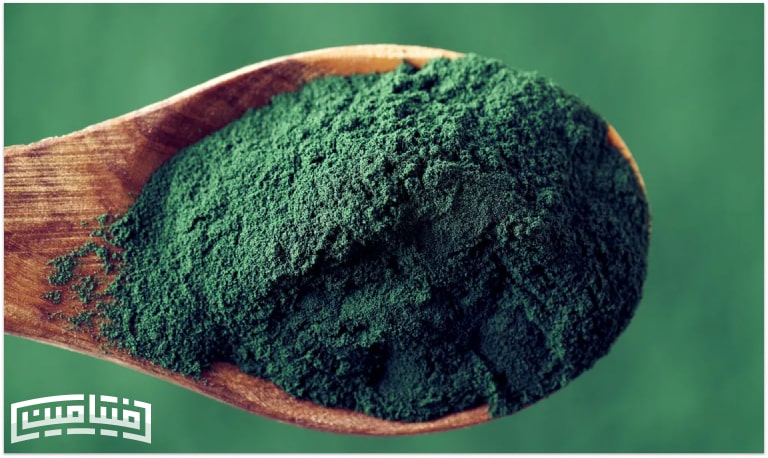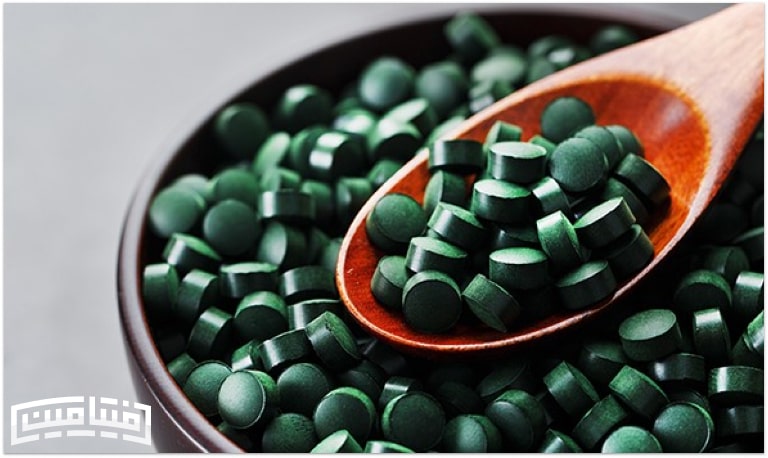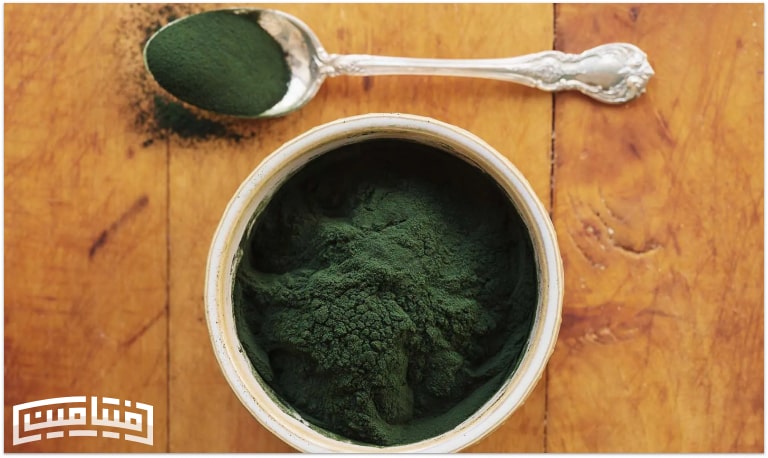These days we hear the name of spirulina a lot as a supplement and it seems that this supplement has gained many fans. But what exactly is spirulina and is it as useful as they say?
Spirulina is a seaweed and contains a variety of vitamins, minerals, antioxidants and protein. In this article about vitamin, we will read about this issue together.
What is spirulina?
Spirulina is a blue-green seaweed that is full of vitamins, minerals, antioxidants and protein. This algae has a long history as a very valuable and rich food. This algae was first eaten as food by the ancient Aztecs. But today it is consumed as a supplement by NASA astronauts on space missions and athletes.
The great thing about spirulina is that it contains more protein than many vegetables and can be considered a good source of protein for vegans. However, you should know that this supplement does not have enough amino acids that your body needs to function better.

Spirulina supplements are available in powder, capsule, and tablet form And you can mix the powder with smoothies, salads, etc. one tablespoon (7 grams) It contains the following nutrients:
- Calories: 20.3
- Protein: 4 grams
- Fat: 0.5 grams
- Carbohydrates: 1.7 grams
- Fiber: 0.3 grams
- Calcium: 8.4 mg
- Iron: 2 mg
- Magnesium: 13.6 mg
- Phosphorus: 8.3 mg
- Potassium: 95 mg
- Sodium: 73.5 mg
- Folate: 6.6 micrograms (mcg)
- Manganese: 0.1 mg
What are the properties of spirulina algae?
Many studies point to the advantages and benefits of spirulina, and of course, research on the benefits of spirulina supplements for “medical treatments” is still ongoing and more studies are needed. The following are some of the properties and benefits of this blue-green algae.
1. Help to treat ulcerative colitis
Ulcerative colitis is an inflammatory bowel disease (IBD) that primarily affects the colon. This disease can increase the risk of anemia, colon cancer and other diseases.
But one study showed that people who took 1 gram of spirulina daily, their symptoms improved after 8 weeks and this substance was useful for treating anemia. Of course, further study is necessary to confirm these results.
2. Increasing the antioxidant capacity
Studies show that daily consumption of 1 to 8 grams of spirulina increases superoxide dismutase (SOD) and total antioxidant capacity (TAC). Total antioxidant capacity, the body’s ability to neutralize free radicals, was increased by daily consumption of spirulina. Antioxidants are necessary to prevent cell damage and protect the health of the body.
3. Positive effects for athletes
Intense exercise can cause inflammation, weakening of the immune system and lower performance of the athlete, and in a study, the effect of spirulina on these cases was studied. The result of this study showed that spirulina was able to reduce harmful cell changes, reduce inflammation and skeletal muscle damage and better and faster recovery. So we can say that spirulina has benefits for athletes.
4. Improve blood pressure
In several separate studies, the effect of spirulina consumption on the blood pressure of patients was investigated. In these studies, 1 to 8 grams of spirulina were given to patients for 12 weeks and the results were encouraging. A decrease in blood pressure occurred in people with high blood pressure.


5. Blood sugar control
Rapid and uncontrolled changes in blood sugar over time can have a severe negative effect on people with type 1 or 2 diabetes, eating disorders, etc. A study published in 2023 shows that spirulina lowers blood sugar levels.
Probably the reason for this is its high protein and fiber content. But scientists are still investigating this issue.
6. Cholesterol level
Your body needs good cholesterol to function properly. Several studies on cholesterol levels after consuming spirulina showed that good blood cholesterol increased and bad cholesterol decreased.
7. Positive effect on the skin
Although more research is needed, spirulina is likely beneficial for the skin due to its many antioxidant compounds. Spirulina has protective and repairing effects on the skin and can be effective in reducing inflammation and skin damage and providing skin collagen.
Is spirulina useful for weight loss?
This supplement may help with weight loss in several ways. First, this algae is a source of protein. Digestion of protein requires more time and you will feel full for a long time by consuming it.
Spirulina may also help increase your basal metabolism. (Increasing basal metabolism is beneficial for weight loss). A small study showed that people who took 6 grams of this supplement daily experienced beneficial metabolic effects along with weight loss and greater health.
Also, in another study, scientists investigated the effect of spirulina on weight management in obese people and found that the participants lost about 2 to 2.5 kilos after regular consumption of this substance. However, from a clinical point of view, you can’t count on these results too much and consider this supplement as a weight loss miracle.
What are the benefits of spirulina in bodybuilding?
Spirulina is a good source of plant proteins that can also help build muscle. Also, spirulina is rich in iron (100 grams of spirulina has about 28 mg of iron); Apart from iron, there are other valuable nutrients in spirulina.
The 5 important vitamins for athletes are vitamins C, B1, B2, B3 and B6, which are directly involved in the energy supply and recovery process. For example, fortunately, this seaweed contains a large number of vitamin B groups, which are important for providing energy and better recovery after exercise. Also, the anti-inflammatory properties of spirulina can improve post-workout pain and shorten recovery time. But don’t look for miracles and special events in bodybuilding by consuming spirulina!


The amount and method of taking spirulina
There is currently no recommended “effective” dose of spirulina, and recommendations vary.
Studies have examined 1 to 10 grams per day for up to six months and 19 grams per day for up to two months. But the general guideline is:
- Consult your doctor before consuming this algae;
- Read the product label and proceed accordingly.
Possible side effects of spirulina
This supplement, like all other things, can have side effects in some cases and for some people. Some of its possible complications are:
- It may cause side effects such as bloating, constipation or allergic reactions in some people.
- The safety of spirulina in pregnant or lactating people has not been established. If you are pregnant, planning to become pregnant, or breastfeeding, talk to your doctor before using it.
- The safety of spirulina in children has not been established. Talk to your pediatrician before giving it to your child.
- This algae grows in lakes and can sometimes be contaminated with lead, other heavy metals or toxins in the water. So don’t take spirulina from the lake yourself and don’t consume it.
- People with certain medical conditions may need to avoid it.
final word
Spirulina is a blue-green seaweed. This algae has a variety of vitamins, minerals, antioxidants and protein and has various properties and benefits for health. Spirulina can be useful and effective for weight loss and bodybuilding.
Resources: verywellhealth – ozersnutrition
RCO NEWS
RCO

















